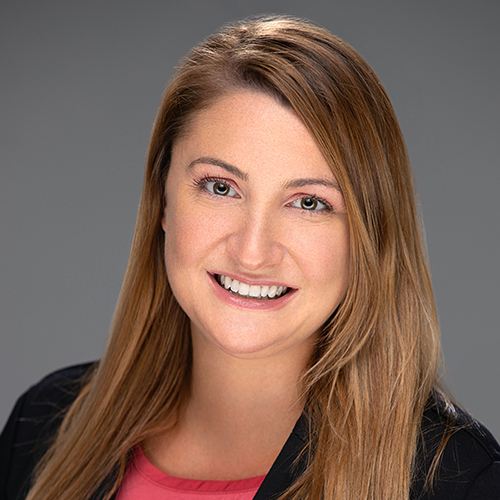 IBCLC Detailed Content Outline: Pathology Focused CERPs - Section III
IBCLC Detailed Content Outline: Pathology Focused CERPs - Section III
Access CERPs on Pathology for the IBCLC Detailed Content Outline recertification requirements. Enjoy convenient on-demand viewing of the latest Pathology focused IBCLC CERPs at your own pace.
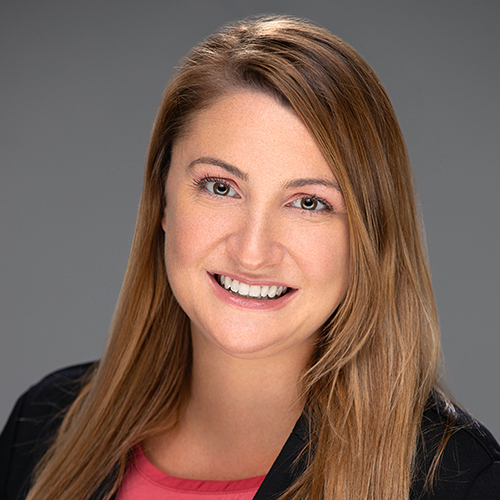

Dr. Jennifer Barnes is the Neonatal Intensive Care Clinical Pharmacy Specialist at Levine Children’s Hospital in Charlotte, NC. She has over 10 years of experience within the field. Dr. Barnes received her bachelor’s degree at Virginia Tech and her Doctor of Pharmacy at Virginia Commonwealth University’s Medical College of Virginia. She completed her pharmacy practice residency at Alamance Regional Medical Center- Cone Health. Dr. Barnes is board certified in pediatric pharmacotherapy. She is also an active member of the Pediatric Pharmacy Association (PPA) and is currently serving as the neonatology committee chair. Dr. Barnes serves as a clinical assistant professor for pharmacy advanced practice rotations for University of North Carolina, University of South Carolina, Wingate University and High Point University. Her current research areas of interest include the role of diuretics in bronchopulmonary dysplasia treatment and antibiotic stewardship for late-onset sepsis amongst other topics.
Topic: Get the LOW Down on Neonatal Hypotension - [View Abstract]
Topic: Starbucks for Babies? Caffeine Use in Neonates - [View Abstract]
At no other time does the hemodynamic status so drastically and rapidly change as the transition from fetal to extrauterine life. Neonates may experience hypotension due to delayed transition, factors of prematurity such as immature myocardium or secondary to a variety of comorbid states including but not limited to chorioamnionitis, perinatal asphyxia, hypovolemia, patent ductus arteriosus, necrotizing enterocolitis, and sepsis. The definition of hypotension and decision to treat are two of the most controversial topics within neonatology. This is in part due to great variability in blood pressure (BP) ranges among neonates and lack of supporting literature which correlate precise blood pressure values with poor clinical outcomes. Of those affected by hypotension, approximately 10-25% of infants weighing < 1500 grams at birth go on to require a vasoactive medication. Despite decades of research, there is still no definitive evidence regarding the impact of treatment for neonatal hypotension, aside from the fact that vasopressors do tend to increase blood pressure. Vasoactive medications are frequently utilized in hypotensive patients however the underlying pathophysiology should be backbone of which medication is chosen. After this presentation, the audience will have a better understanding of when to treat and benefits and risks of common pharmacotherapy agents for hypotension and shock.

How B.E.S.T. (Basic Evaluation of Structural Tension) Relates to Breast©

Judy Terwilliger is a Clinical RN Therapist with Pediatric experience for over 30 years. As lead therapist, researcher and educator in her proprietary form of functional mobility therapy (Functional Bowen™), she works with allied health care providers in the resolve of hidden structural barrier challenges for infants and children. Her collaborative, integrative team care approach sees many successes. She is committed to equipping families with the tools necessary in support of breastfeeding and enabling parents to participate in the resolve of their children’s structural challenges. She is a member of the National Society of Pediatric Nurses and was a nominee in the 2013 Clinical Excellence in Practice Award. She has been a speaker at the Northern California Placer County Breastfeeding Coalition, Imperial Valley Breastfeeding Summit and presented at the 2016 California Breastfeeding Coalition. Her professional memberships include: ABM Network, International Pediatric Integrative Medicine Network, IATP, and Breastfeeding USA. Judy is a licensed continuing education provider for the National Certification Board for Therapeutic Massage & Bodywork, California Board of Registered Nurses, The California Physical Therapy Association, and the International Board of Lactation Consultant Examiners.
This lecture/course is intended to familiarize the medical and allied health community in the recognition of the often-overlooked muscle-related structural barriers to breastfeeding. It provides a discussion of clues to the predisposing factors of these barriers and explores their affect on infant "functional mobility" as it relates to the achievement of successful breastfeeding. It is intended to improve the clinician’s assessment skills as they work with the mother/infant dyad in resolving breastfeeding difficulties/dysfunctions by development of insight into these often hidden and profoundly destructive structural manifestations. Recognition of these barriers with an emphasis on self-help techniques and when/who to refer parents/caregivers to for help, together with how to best meet their teaching/training needs across cultural barriers, is discussed. The ultimate purpose is the achievement of insight to improve the clinician’s evaluation process, better enabling them to promote, enhance and even save the breastfeeding experience of the families served.

View Details / Enroll

View Details / Enroll


Dr. Narvey began his training in Pediatrics at the University of Manitoba in Winnipeg where he completed a year of further training in Neonatology. This was followed by two years of Neonatal fellowship at the University of Alberta in Edmonton. Afterwards he began his career as a Neonatologist in the same city and over the 6 years he spent there, his career included both clinical and administrative duties including 4 years as the Fellowship Program Director and two years as the Medical Director for a level II unit. In late 2010 he accepted a position in Winnipeg to become the Section Head of Neonatology and continues to hold this post. In 2016 he took on the additional role of Medical Director of the Child Health Transport Team. In 2015 he became a member of the Canadian Pediatric Society’s Fetus and Newborn Committee and in 2019 took over as Chair of the same. His interests predominantly lie in the use of non-invasive technology to minimize painful procedures during an infants stay in the NICU. He is active on social media and has a passion for fundraising and is an active board member of the Children’s Hospital Foundation of Manitoba.
Topic: Human Milk Diet and Fortification: Controversies and Evidence - [View Abstract]
Topic: Many Different Shades of Yellow - [View Abstract]
Topic: Respiratory Problems in the Newborn: Where Are We in 2022? - [View Abstract]
Topic: Sweet and Sour: Hypoglycemia in the Newborn - [View Abstract]
Research supporting the use of exclusive human milk diets will be reviewed. From there we will look at the evidence for improving both short and long term outcomes and then determine what other options exist and where we might be headed in neonatal nutrition.

View Details / Enroll

Human Milk Synthesis: Just When You Thought You Knew

Tom Johnston is unique as a midwife and lactation consultant and the father of eight breastfed children. Recently retired after 27 years in the US Army, he is now an Assistant Professor of Nursing at Methodist University where he teaches, among other things, Maternal-Child Nursing and Nutrition. You may have heard him at a number of conferences at the national level, to include the Association of Woman’s Health and Neonatal Nurses (AWHONN), the International Lactation Consultant’s Association (ILCA), or perhaps at dozens of other conferences across the country. In his written work he routinely addresses fatherhood and the role of the father in the breastfeeding relationship and has authored a chapter on the role of the father in breastfeeding for “Breastfeeding in Combat Boots: A survival guide to breastfeeding in the military”.
Topic: Human Milk Synthesis: Just When You Thought You Knew - [View Abstract]
Topic: New Insights Into the Maternal Child Microbiome - [View Abstract]
Topic: Promoting Provider Self-Efficacy in Breastfeeding Support - [View Abstract]
Topic: Still Swimming Upstream: Breastfeeding in a Formula Feeding World - [View Abstract]
Topic: The Making of Human Milk: A Clinical Update - [View Abstract]
Topic: The Maternal-Child Microbiome or: The “Oro-boobular axis” - [View Abstract]
Topic: The Maternal-Child Microbiome or: The “Oro-boobular axis” - [View Abstract]
Topic: The Perinatal Microbiome - [View Abstract]
Topic: Using Evidence to Develop Clinical Lactation Skills - [View Abstract]
"I didn't make enough milk!" We hear it on a regular basis from heartbroken new mothers. In fact, this is the number one factor contributing to breastfeeding failure after two weeks of age is a perception of inadequate milk production. This phenomenon of sudden onset lactation failure is widely accepted as a common occurrence among breastfeeding mothers. This topic has been the subject of a number of quality studies that have yielded a conflicting mix of responses from primary health care providers and lactation consultants alike. This discussion will attempt to shed light on the very different concepts of "Milk Production" vs. "Milk Synthesis" and will demonstrate how confusion between those two concepts have clouded the study of milk production, promote the fallacy of "insufficient milk production syndrome", and contribute to the failure of breastfeeding. This presentation will also attempt to provide a preliminary course of action to begin anew in milk production research and perhaps even provide a framework for helping the new mothers facing the milk supply challenge.


Dr. Ankita Shah is a leading Airway Focused Dentist. She is also the President of the India Airway Co-LAB Chapter initiated by AAPMD, New York & The Breathe Institute, Los Angeles. Dr. Ankita is also the only Indian Ambassador to be trained by the renowned ENT & Sleep Surgeon Dr. Soroush Zaghi. The Tongue Tie & Sleep Institute headed by her focuses on providing a comprehensive, holistic and multidisciplinary approach to all problems Tongue Tie, Airway & TMJ. She wishes to change the way in which medicine has approached problems in the past and provide patients with a redefined experience to dentistry.
What are tethered oral tissues and what is the role of fascia? Fascia is a thin casing of connective tissue that surrounds and holds every organ, blood vessel, bone, nerve fiber and muscle in place. How is the fascial system connected to TOTS? The condition of tongue-tie and lip-tie exists on a continuum with variable visibility and symptoms differently across the body through different age groups. Some restrictions, mainly anterior or “classic” tongue tie, are highly visible and easier to detect. However, “posterior” or submucosal tongue-ties are often more challenging to diagnose. Through this session, we will explore a detailed dissection of what is fascia and how the concept of tongue ties has evolved and changed with the role of fascia and its impacts with TOTS. It takes a village of specialists to treat this challenging problem. We will learn how we can help prevent a vicious circle of problems if treated early with a holistic integrative approach.
View Details / Enroll
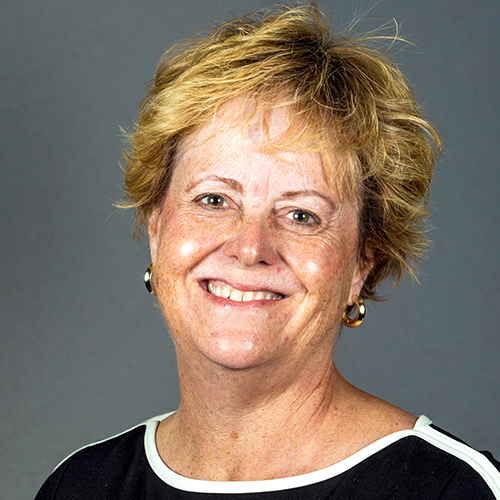

Gail A. Bagwell, DNP, APRN, CNS works at Nationwide Children's Hospital as the CNS of Perinatal Outreach and clinical instructor of practice at the Ohio State University College of Nursing. In her role she works with the healthcare providers caring for neonates and provides education to healthcare providers on the well-newborn as well as care of the sick and premature newborn and serves as a resource on neonatal and quality improvement initiatives. Gail is a member of the National Association of Neonatal Nurses (NANN) and currently the Immediate Past President of the organization. She is also a member of the Central Ohio Association of Neonatal Nurses, American Nurses Association, Ohio Nurse’s Association, Association of Women’s Health and Neonatal Nursing, Academy of Neonatal Nursing, National Association of Clinical Nurse Specialists, Sigma Theta Tau and a Fellow in the American Academy of Nursing. Gail's interests are neonatal abstinence syndrome, breastfeeding, safe sleep, newborn resuscitation and stabilization and parent transition. Gail is a published author of book chapters in all six editions of the Kenner’s ""Comprehensive Neonatal Care"" textbook, the Encyclopedia of Child and Adolescent Development, Neonatal Nursing Care Handbook, editor of the NANN Guideline for Newborn Safe Sleep and multiple journal articles.
Sleep related deaths are the number one cause of infant deaths in the United States, with neonates that have been in a NICU being at a higher risk. In order to combat this problem, the American Academy of Pediatrics (AAP) in the early 1990's began publishing recommendations on how to prevent sleep related deaths in healthy term infants. This effort has led to a decrease in infant sleep related deaths, but confusion remains on when a premature or convalescing neonate be transitioned to a safe sleep environment in the NICU. This presentation will review the different types of sleep related deaths in infants, most current theory of cause of SIDS, review the myths of safe sleep and give guidance to the NICU nurse on how to implement safe sleep in their unit.
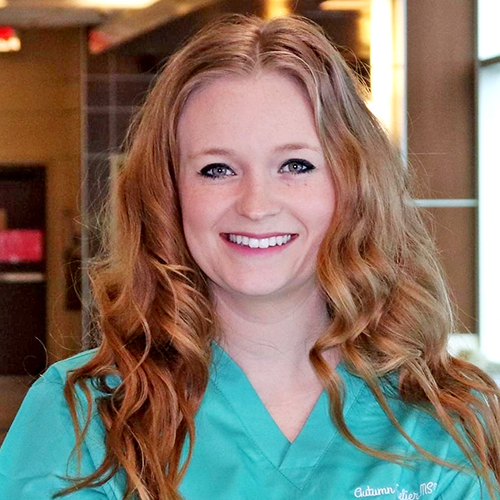
Improving Outcomes for the Dyad: Identification & Management of Hypertension in Pregnancy

Autumn Fuselier holds a bachelor's degree in nursing from The University of Tennessee. She also holds a master's degree in nursing with a specialty in nurse-midwifery and a doctorate of nursing practice with Frontier Nursing University. She is board-certified by the American Midwifery Certification Board and is a professional member of the American College of Nurse-Midwives and a legislative advocate through the National Government Affairs Committee (NGAC). Autumn has experience working with adult and obstetric critical care populations, as well as in antepartum, intrapartum, postpartum, and newborn care. She is also faculty for midwifery and women's health NP students at Frontier Nursing University.
A wife and mom of four herself, Autumn personally knows the challenges and joys of pregnancy and motherhood. She has a passion for improving maternal and neonatal health and strongly believes in the power of midwifery and shared-decision making to improve outcomes and empower birthing people and their families.
Hypertension in pregnancy is a global public health threat complicating approximately 2-3% of pregnancies worldwide. The hypertensive spectrum ranges from mild, essential, or gestational hypertension to severe disease including the pre-eclampsia spectrum, HELLP syndrome, and eclampsia. These hypertensive disorders account for approximately 50,000 maternal deaths worldwide and have become a leading cause of maternal mortality. The incidence of hypertensive disorders of pregnancy has also increased worldwide, disproportionately affecting pregnant people of color. Staying up to date with the latest research and thoughts on best practice for identification of disease and clinical management of hypertension in pregnancy can prepare practitioners to efficiently identify and treat pregnant people with hypertension thereby reducing complications and improving maternal and fetal mortality and morbidity rates.
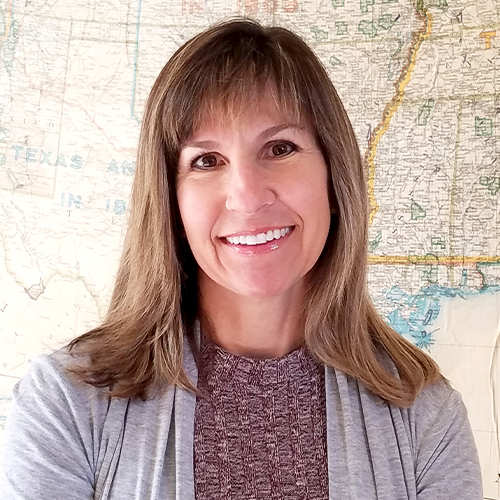
Infant Airway and Tongue-Tie: Importance of Breathing for Feeding, Growth and Development

Upon becoming a mother and struggling through breastfeeding both of her babies, René first began supporting breastfeeding as a peer counselor, with a desire to help others as she was helped, and continues to support families in this way. She became an IBCLC and started her private practice, First Food For Baby, to provide professional lactation care a few years later. Recognizing the need to serve underinsured and marginalized families, she founded the Phoenix based 501(c)(3) non-profit organization, American Breastfeeding Foundation, in 2020 that will one day reach and support families nationwide, facilitating specialized care for underserved populations.
René loves helping families through their unique breastfeeding journey, providing guidance to avoid complications and empowering them to exceed their goals. She welcomes the challenge this brings, from the complexities of airway issues to feeding position experimentation. She cherishes the loving interactions between babies and their parents. She considers it an honor to be trusted with each precious new life and to witness the intimacy and beauty that is breastfeeding. She bases her foundational knowledge on evidence-based data and research but realizes that the human experience she’s has learned over the past 25 years is equally important.
This presentation is focused on infant airway as it relates to tongue-tie. Participants will learn to recognize subtle, unhealthy deviations from normal, healthy breathing, including general tongue presentation and breathing patterns (especially before and after tongue-tie release). This is important for many reasons but could be helpful in contributing to optimal frenectomy outcomes and avoiding regression. Additionally, the importance of identifying at risk infants to help avoid common misdiagnosis and labelling that is more often actually struggle with breathing and sleep will be discussed, all of which ultimately optimize breastfeeding outcomes and health for the lifespan.


Maureen Minchin is a medical historian whose 1970s experience of motherhood resulted in her second book, Food for Thought: a parent’s guide to food intolerance, recognized as ground breaking in its treatment of infant allergy. Her third book, Breastfeeding Matters, was declared a “milestone in the history of breastfeeding” by Prof JD Baum. For 35 years she has worked extensively in the area of infant nutrition, including for WHO, and UNICEF, and teaching health professionals in Australia and overseas. She was influential in the creation of IBLCE and BFHI, and a founding (and later Board) member of both ILCA and ALCA. Maureen has continued to work free of charge with families with both infant feeding and allergy problems. After a decade in eldercare, Maureen is getting back to writing, recently helping with the online infant feeding courses being developed by the UK’s University of York and the National HS-sponsored e-learning for health project. Her latest book, Milk Matters: Infant Feeding and Immune Disorder was published in 2015.
This presentation outlines a new understanding of why early infant feeding matters, generated by recent research into the microbiome and epigenetics as well as clinical and personal experience over decades. It focuses on allergy as an bilateral legacy which compounds through generations. Emphasis is on presenting symptoms and management in the breastfeeding family, although some infant formula issues are considered.. Maternal diet in pregnancy and lactation, and the effects of allergy on families, are all discussed.

Interoception: Beyond the Homunculus....The Real Sixth Sense and Its Primary Function as Sensory Input to the Autonomic Nervous System

Michelle has been a pediatric neurodevelopmental Occupational therapist specializing in precrawling infants for over 26 years. She has specialty certifications and training in lactation, manual therapy, and pre and peri natal psychology. Michelle has specialized in optimal cranial nerve function and oral restrictions, with an emphasis on infant movement, innate biological imperatives and human potential, providing novel curriculums, support and resources for both professionals and parents. She enjoys collaborating and working in teams for babies and families going through the tethered oral tissues release process.
Topic: Breastfeeding and Cranial Nerve Dysfunction – the what, who and why of Cranial Nerve Dysfunction in the newborn to precrawling baby - [View Abstract]
Topic: Compensatory vs Novel Movements: 3 Keys for Babies With Tongue, Lip and Buccal Restrictions - [View Abstract]
Topic: Interoception: Beyond the Homunculus....The Real Sixth Sense and Its Primary Function as Sensory Input to the Autonomic Nervous System - [View Abstract]
Topic: The Vagus Nerve: Branchial Motor / Special Visceral Efferents: The Pharynx, Larynx, Soft Palate and one tiny tongue muscle - [View Abstract]
Topic: TummyTime!™ : A Therapeutic Strategy for Parents and Babies - [View Abstract]
Interoception is a term used to describe our nervous system's awareness of the sensations from the gastrointestinal and visceral system, as well as the primary sensory part/input to baby's Autonomic Nervous System. ANS function and regulation underlay all automatic processes of the body, from heart beat to breastfeeding and digestion function, as well as maintaining a calm state in order to engage in social interaction or to transition easily in and out of sleep. More simply put, interoception is "feelings from the body". In addition to visceral information, interoceptive pathways carry information related to affective touch, itch, temperature and pain and are delivered to a separate area of the brain, the insular cortex, which also contains a map of the body, similar to the well known homunculus. Interception plays a large role in dynamic equilibrium and autonomic regulation of tissues of the body. Interoceptive information and the processing is the basis of all important activity to optimize energy utilization. This system is often compromised in babies who present with complex oral dysfunction, tethered oral tissues, postural asymmetries, fussiness, gas, reflux or other dysregulation in function. How babies feel is mirrored in how they function, compromised function equals compromised interoceptive processing. This talk covers the basics of this system and practical clinical applications for precrawling babies to optimize neurodevelopment and breastfeeding abilities.

View Details / Enroll



